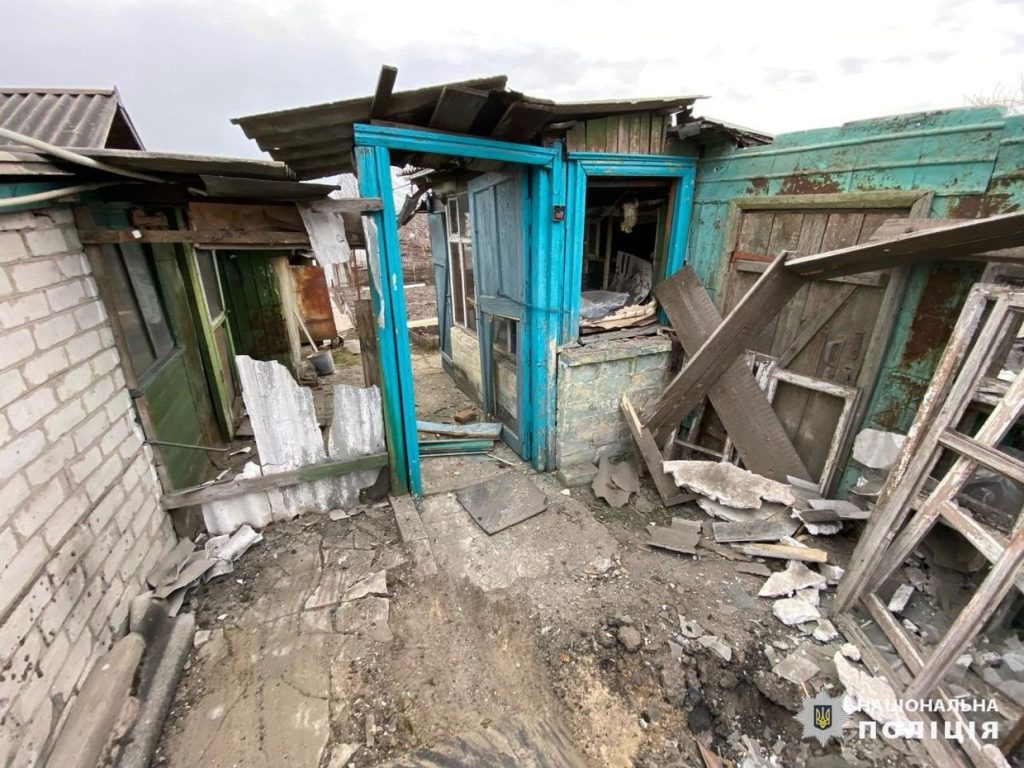Russian forces launched an attack on Kharkiv and Kharkiv Oblast on March 26, causing injuries to civilians. A Russian anti-ship missile hit the dormitory of Kharkiv’s sports college, resulting in the injury of a 64-year-old man and significant structural damage to the building. Additionally, Russian attacks have targeted critical infrastructure in the region, including a thermal power plant and electrical substations, leaving about 200,000 households in Kharkiv without electricity. In Kupiansk, a man was injured due to a Russian attack with cluster munitions, causing damage to houses in the area. The city has been under heavy attacks as Russia intensifies its offensive efforts in the region.
The Russian military has launched a new wave of missile and drone attacks against Ukraine between March 21-25, causing significant damage to the country’s critical infrastructure. Over the past week, Ukraine has been hit by 190 missiles, 140 Shahed-type drones, and 700 aerial bombs, demonstrating the severity of the attacks. President Volodymyr Zelensky has called for support in defending Ukraine against the Russian aggression, emphasizing the need for international assistance to counter the ongoing attacks. The attacks aim to weaken Ukraine by targeting essential services and infrastructure, posing a threat to the country’s stability and security.
The attacks on Kharkiv and other regions in Ukraine highlight the brutal nature of the conflict and the impact on civilian lives. The ongoing fighting has resulted in injuries and casualties among civilians, with reports of significant damage to residential areas and critical facilities. The destruction of infrastructure such as power plants and electrical substations not only disrupts daily life for residents but also poses challenges for emergency response and humanitarian aid efforts. The attacks on Kharkiv and Kupiansk reflect the broader strategy of the Russian military to undermine Ukraine’s ability to defend itself and maintain essential services.
In response to the escalating violence, local authorities in Kharkiv Oblast have announced mandatory evacuations of residents living in communities near Kupiansk to ensure their safety. The intensification of attacks in the region has raised concerns about the humanitarian situation and the need for increased support for internally displaced persons and affected populations. The ongoing conflict in Ukraine continues to cause widespread displacement and hardship for civilians, highlighting the urgent need for international solidarity and assistance. As the situation worsens, there is a growing sense of urgency to address the humanitarian crisis and protect the most vulnerable populations.
The attacks on Kharkiv and other regions in Ukraine underscore the importance of supporting independent journalism to provide accurate and timely information about the situation on the ground. Independent media play a crucial role in documenting the impact of the conflict, exposing human rights abuses, and holding perpetrators accountable for their actions. By supporting independent journalism in Ukraine, individuals can contribute to promoting transparency, accountability, and truth amid the ongoing crisis. Through reporting on the events in Kharkiv and other conflict-affected areas, journalists help shed light on the experiences of civilians and the challenges they face.
In the face of growing Russian aggression and attacks on critical infrastructure, the international community must stand united in supporting Ukraine and condemning the actions of the Russian military. It is crucial to mobilize diplomatic efforts, provide humanitarian assistance, and uphold the principles of international law to address the crisis in Ukraine. By joining the fight to support independent journalism in Ukraine and raising awareness about the situation, individuals can play a role in amplifying the voices of those affected by the conflict and advocating for peace, justice, and security in the region. The attacks on Kharkiv and Kharkiv Oblast serve as a stark reminder of the human cost of war and the need for solidarity in the face of adversity.


